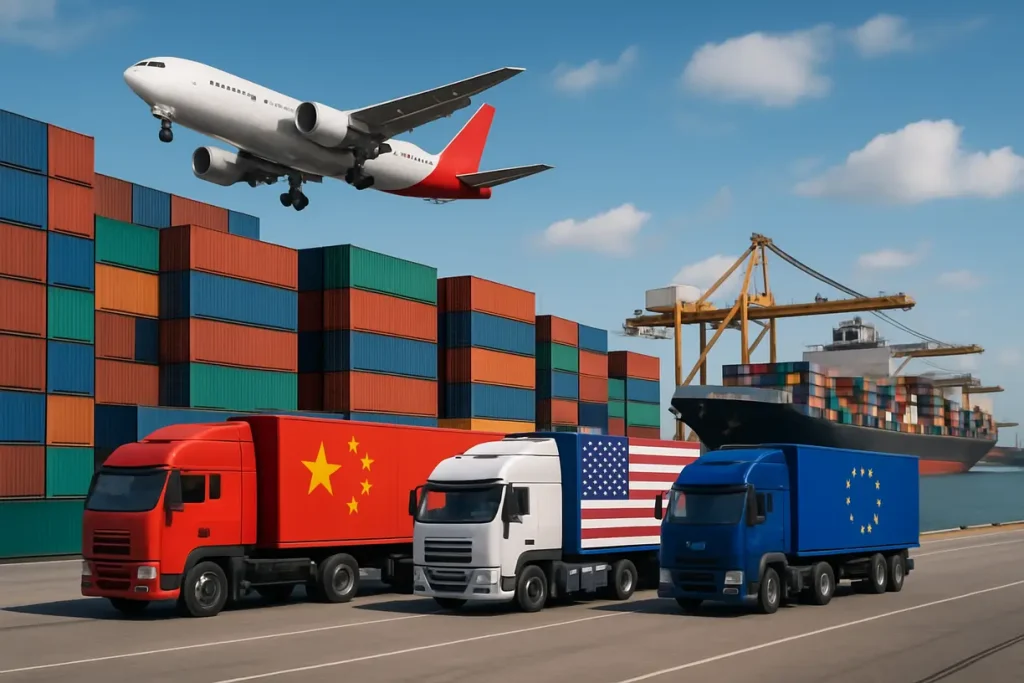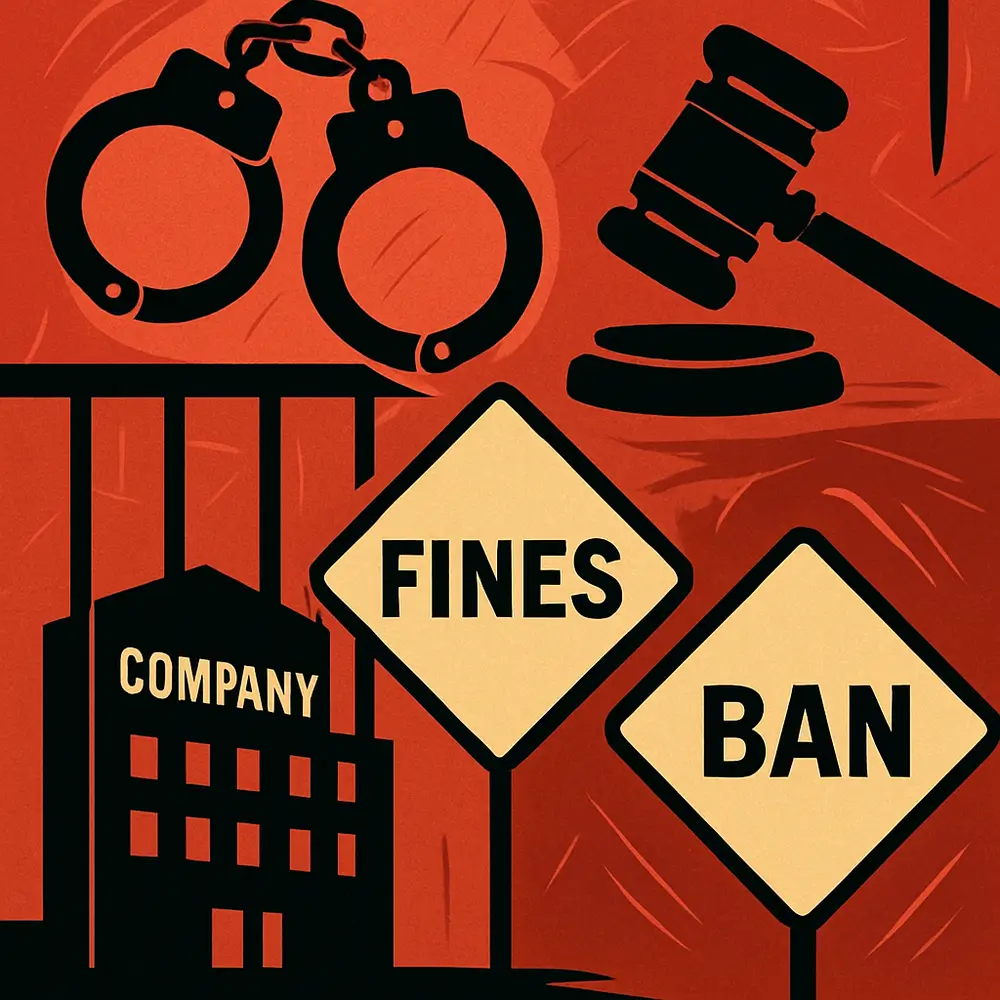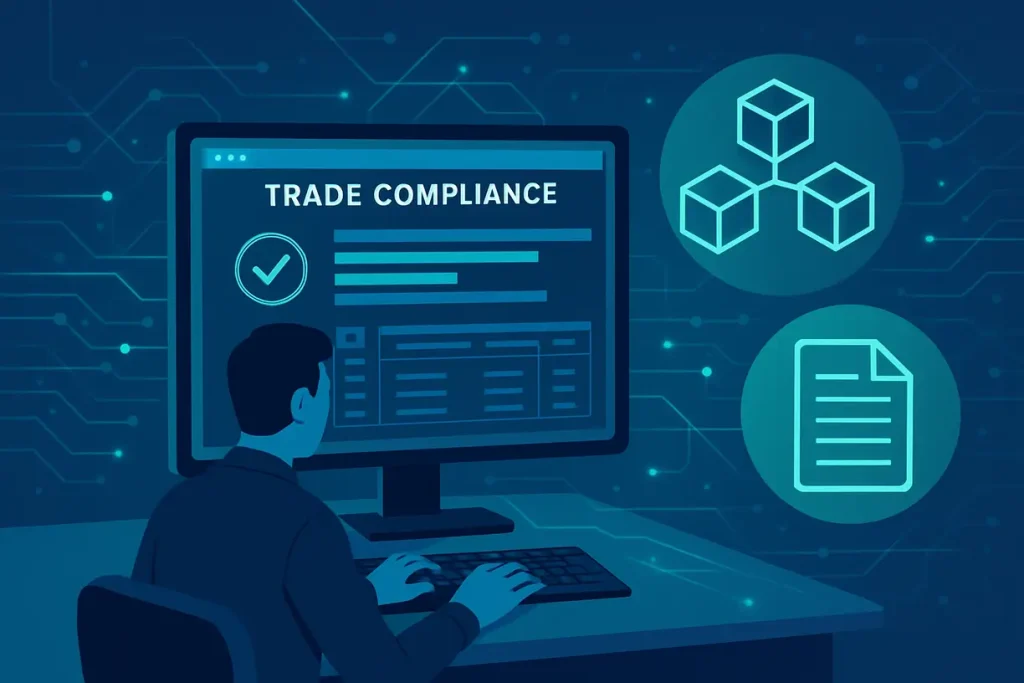Understanding the impact of import-export regulations on the trade of zirconia powder is crucial for businesses in this sector. Many companies face challenges navigating these regulations, which can lead to costly mistakes or missed opportunities. This article addresses common concerns regarding compliance and offers clear strategies to streamline international trade operations. With insights drawn from industry experts, you can trust that this guide will enhance your understanding of the regulatory landscape surrounding zirconia powder.
What Are Import-Export Regulations for Zirconia Powder?
Import-export regulations for zirconia powder refer to the set of legal requirements that govern the trade of this material between countries. These regulations can cover a wide range of aspects, from tariffs and quotas to safety and environmental standards.
Compliance with these regulations is vital for businesses seeking to engage in international trade. Non-compliance can lead to severe consequences including fines, delays in shipments, and reputational damage. Companies must understand who oversees these regulations. Regulatory bodies such as the World Trade Organization (WTO), local customs agencies, and health and safety organizations often play key roles in enforcing compliance.
Additionally, companies need to consider the impact of regional trade agreements that may offer advantages or impose extra regulations. These agreements could simplify certain processes and reduce trade barriers, making it crucial for businesses to identify applicable treaties.
A well-informed approach enables companies to navigate this complex landscape effectively. For instance, knowing specific documentation required during customs clearance can save time and resources. Therefore, staying updated on these regulations is essential for any company involved in selling or purchasing zirconia powder.
Key Considerations for Compliance:
- Awareness of changes in regulatory frameworks
- Maintaining thorough records of all transactions
- Engaging with knowledgeable customs brokers

This image illustrates the concept of international trade regulations, crucial for businesses dealing with zirconia powder.
| Regulation Type | Description | Example |
|---|---|---|
| Tariffs | Taxes imposed on imported/exported goods. | 5% tariff on imports |
| Quotas | Limits on the quantity of goods that can be imported/exported. | 1,000 tons per year |
| Safety Standards | Guidelines to ensure products are safe for use and transport. | ISO 9001 certification |
| Environmental Regulations | Laws aimed at protecting the environment during production and transportation. | REACH compliance |
Why Are These Regulations Critical for Businesses?
Regulations are not just bureaucratic hurdles; they are critical benchmarks for operational integrity. Understanding these regulations helps mitigate various risks associated with international trade. They play a significant role in ensuring that businesses remain competitive and compliant in a global market where regulations can vary widely.
One major risk is legal repercussions. Businesses failing to comply with import-export regulations can face hefty fines and potential bans from entering certain markets. Additionally, these regulations impact logistics and supply chain management. Non-compliance can cause delays in shipments, leading to unhappy customers and lost revenue.
To illustrate, consider a company exporting zirconia powder without the necessary permits. If customs denies entry at the border, this not only creates a financial loss due to wasted resources but also harms the company’s reputation.
Moreover, non-compliance can lead to additional issues such as increased scrutiny from regulatory bodies, which can complicate future transactions. A negative compliance history may also make it difficult for businesses to form partnerships or secure financing.
The impact of these risks can be profoundly damaging, especially in today’s interconnected marketplaces. Therefore, companies must prioritize compliance as part of their overall strategy. This change not only keeps operations running smoothly but also enhances customer confidence.
| Compliance Risk | Impact |
|---|---|
| Legal Penalties | Fines, potential business shutdown, or reputation damage |
| Supply Chain Delays | Increased costs and customer dissatisfaction |
| Reputational Damage | Loss of trust among partners and clients |
What Specific Regulations Govern Zirconia Powder?
Regulations governing the trade of zirconia powder vary by country but often include a mix of global standards and local laws. These regulations are designed not only to facilitate trade but also to ensure safety, environmental protection, and fair competition within the marketplace. Familiarity with these regulations is essential for smooth international operations.
- Country-Specific Regulations: Different nations have unique requirements relating to the import and export of zirconia powder. For instance, some countries may require special permits for importation, while others might implement specific labeling standards. Companies must stay informed about local regulations in every market they enter to avoid non-compliance.
- International Standards and Agreements: International trade agreements can simplify or complicate the export process. Agreements like the WTO’s Trade Facilitation Agreement aim to standardize practices across member countries, which can lower barriers to trade. Understanding these agreements helps businesses leverage potential advantages in tariffs and documentation requirements.
- Environmental and Safety Regulations: In places like the European Union, environmental laws such as REACH (Registration, Evaluation, Authorisation and Restriction of Chemicals) dictate how trade must be conducted to ensure the substance does not harm human health or the environment. Strict compliance with these regulations is crucial for companies aiming to access markets where consumer safety and environmental concerns are prioritized.
- Transport Regulations: Depending on the mode of transport (air, sea, or land), there may be additional regulations specific to the handling and shipping of zirconia powder. This can include packaging requirements to prevent contamination or damage during transit, as well as adherence to international shipping conventions that ensure safe transportation.
An in-depth understanding of these aspects allows businesses to tailor their approaches, ensuring compliance while maintaining efficiency. Regulatory knowledge is not merely a requirement; it is a strategic asset that can enhance market adaptability and mitigate risks.
| Regulation Type | Applicability | Example |
|---|---|---|
| Country-Specific Regulations | Varies by the exporting/importing country | Import licenses required in the USA |
| International Standards | Global norms for trading goods | ISO certifications applicable |
| Environmental Regulations | Laws ensuring safe handling and disposal | REACH adherence in the EU |
| Transport Regulations | Guidelines for the safe shipping of goods | IATA regulations for air transport |
By understanding and adhering to these diverse regulations, companies can navigate the complexities of international trade in zirconia powder while protecting their interests and ensuring long-term success.
How Can Businesses Ensure Compliance?
Ensuring compliance with import-export regulations requires a systematic approach. Here are key steps businesses can take:
- Assessment of Regulatory Requirements: Companies should conduct a thorough analysis of all relevant regulations in both the export and import countries. This involves not just understanding the basic tariffs and quotas, but also delving into the specific paperwork and legal obligations required. Engaging legal experts can provide clarity on nuanced regulations that might directly impact your operations.
- Monitoring Changes in Regulations: Trade regulations can change rapidly due to shifting political climates or international agreements. To stay ahead of these developments, companies should subscribe to industry newsletters or utilize compliance software that provides timely alerts. Regular training for staff on current regulations is also beneficial, as it promotes an informed workforce that can respond quickly to regulatory shifts.
- Best Practices for Documentation: Proper documentation is crucial in ensuring compliance. Maintain meticulous records of all transactions, including shipping documents, invoices, and correspondence with customs authorities. Using electronic document management systems can streamline this process, ensuring that documents are easy to access and retrieve. This not only saves time during inspections but also serves as evidence of compliance efforts if needed.
- Engage with Experts: Partnering with legal advisors or customs brokers who specialize in international trade can provide additional insights. These experts can help your business navigate complex regulations and keep your compliance processes up-to-date. Workshops and training sessions might also be beneficial for internal teams.
Implementing these practices can streamline operations and mitigate risks. When companies proactively manage their compliance, they not only enhance operational efficiency but also foster trust with partners and customers.only enhance operational efficiency but also foster trust with partners and customers.
| Compliance Strategy | Description | Benefits |
|---|---|---|
| Regulatory Assessment | Regular audits to analyze current compliance status | Early detection of issues |
| Monitoring Changes | Keeping up-to-date with trade news and regulations | Reduces risk of non-compliance |
| Proper Documentation | Maintaining thorough records for all transactions | Supports legal standing |
What Are the Consequences of Non-Compliance?
Failing to comply with import-export regulations can lead to severe consequences. Businesses must understand the stakes involved.
Legal repercussions are significant. Non-compliance can result in fines that can cripple cash flow, restrict trade access, or even lead to criminal charges against key personnel. Moreover, the impact of losing the ability to export can alter a company’s survival trajectory dramatically.
In addition to financial penalties, companies risk significant reputational damage. News of compliance issues can spread quickly, resulting in a loss of trust among customers and partners. This reputational fallout can extend for years, impacting future deals.
Furthermore, non-compliance can lead to disrupted operations. Delayed shipments affect inventory and can lead to stockouts. Both financial losses and unhappy clients follow.
Understanding these potential consequences fosters a sense of urgency regarding compliance. It reminds businesses that investment in regulatory knowledge can yield substantial long-term benefits.
| Consequence Type | Impact |
|---|---|
| Financial Penalties | Direct monetary losses due to fines |
| Reputation Damage | Loss of customer trust and future business |
| Operational Disruptions | Delayed shipments leading to supply chain issues |

This image highlights the potential legal consequences businesses face when failing to comply with trade regulations.
What Role Do Customs Brokers Play?
Customs brokers serve as vital intermediaries between businesses and trade regulations. Understanding their role can enhance compliance and streamline processes.
Essentially, customs brokers help companies navigate the complexities of import and export regulations. They assist with the preparation of necessary documentation and ensure that shipments meet all legal standards.
Choosing the right customs broker is critical. Look for a broker experienced with zirconia powder trade and familiar with the specific regulations of your markets. This expertise can help in minimizing the chance of errors, thus facilitating smoother transactions.
Moreover, customs brokers can provide valuable insights into how trade regulations may change, allowing your organization to remain proactive. Their knowledge can prove invaluable in maintaining compliance and avoiding penalties.
| Broker Function | Description | Value Add |
|---|---|---|
| Documentation Preparation | Prepare all necessary import/export documents | Reduces risk of delays |
| Customs Guidance | Offer advice on regulations and procedures | Enhances compliance |
| Market Insights | Provide updates on regulatory changes | Keeps business ahead of risks |
How Does Trade Technology Affect Compliance?
Trade technology can significantly simplify the complexities of regulatory compliance. Here are some technology trends transforming the landscape:
- Electronic Documentation: New systems allow for electronic submissions of permits and certifications. This method reduces paperwork and the chance of human error, streamlining operations.
- Compliance Software: Companies can leverage software solutions that track regulatory changes and offer real-time compliance checks. These tools can alert management to potential oversights based on current regulations.
- Blockchain Technology: This technology provides transparency in transactions, making it easier to trace products and verify compliance at every step. Using blockchain can minimize disputes over regulatory adherence.
Investing in these technologies not only enhances compliance but also improves overall efficiency in trade operations. By staying ahead of tech trends, businesses can ensure they remain compliant while optimizing their trade processes.
| Technology Type | Description | Benefit |
|---|---|---|
| Electronic Documentation | Digital submissions to customs | Faster processing times |
| Compliance Software | Tools for monitoring regulations | Real-time compliance checks |
| Blockchain Technology | Secure records of transactions | Enhanced tracing and transparency |

This image represents the role of technology in facilitating compliance with trade regulations.
What Resources Are Available for Trade Regulations?
Navigating import-export regulations can be daunting, yet many valuable resources are available to assist businesses in compliance:
- Government Resources: Many countries provide official websites with information regarding trade regulations. These can include manuals, guidelines, and contact information for local customs offices.
- Industry Associations: Professional organizations often offer resources, webinars, and guides on achieving compliance. They can also serve as networking hubs where businesses can share experiences and strategies.
- Online Platforms: Websites like the WTO or trade compliance blogs are excellent for accessing the latest information on changing regulations.
These resources equip businesses with the knowledge needed to thrive in a regulated environment. They offer support that can make a significant difference in achieving compliance.
| Resource Type | Benefits | Example |
|---|---|---|
| Government Websites | Official information on trade regulations | US Customs and Border Protection site |
| Industry Associations | Networking opportunities and best practices | National Foreign Trade Council |
| Online Platforms | Updates on regulations and compliance tips | WTO website, trade compliance blogs |
How Can Companies Stay Updated on Regulations?
Maintaining updated knowledge of trade regulations is crucial. Here are several strategies companies can utilize for this purpose:
- Regular Regulatory Audits: Conduct periodic reviews of your operations to ensure ongoing compliance with current laws. This proactive strategy can identify potential issues before they escalate.
- Subscribing to Newsletters: Many organizations provide newsletters that contain updates and analyses of trade regulations. Staying subscribed keeps companies informed of late-breaking news.
- Joining Trade Forums: Engage with industry peers through forums or social media groups. These platforms can offer insight into how others are navigating compliance issues and the changes they are encountering.
Implementing these strategies fosters an environment of continuous learning within your organization. By staying informed, companies can adapt quickly to shifts in the regulatory landscape.
| Staying Updated Strategy | Description | Expected Outcome |
|---|---|---|
| Regular Audits | Scheduled evaluations of compliance status | Identify compliance gaps |
| Newsletters | Subscription to industry updates | Timely information on regulatory changes |
| Trade Forums | Participation in discussions with peers | Shared insights and strategies |
What Are Common Misconceptions About Trade Regulations?
Misunderstandings often arise regarding import-export regulations. Clearing these up can help businesses approach compliance more effectively.
- Regulations Are the Same Everywhere: Many assume regulations are uniform across countries, but this is far from the reality. Each nation has its own set of rules, and understanding these is vital for successful trade.
- Compliance is Optional: Some businesses believe they can choose whether to comply with regulations. In reality, non-compliance can lead to severe penalties and disruptions.
- Regulatory Costs Are Excessive: While there are costs associated with compliance, many businesses find that the benefits far outweigh these expenses. Compliance often results in smoother operations and enhanced reputation.
By addressing these misconceptions, companies can take a more informed approach to compliance. Knowledge is power in the world of international trade.
| Misconception | Reality |
|---|---|
| Regulations Are Universal | Each country has unique laws and requirements |
| Compliance is Optional | Non-compliance has serious consequences |
| Costs Are Too High | Compliance investments yield significant benefits |
Conclusion
Throughout this article, we explored how import-export regulations affect the trade of zirconia powder. We discussed their importance for businesses, the potential consequences of non-compliance, and methods to ensure adherence. Understanding these regulations can lead to more efficient operations and reduced risk. By effectively implementing compliance strategies, companies can enhance their credibility and operational success in the global marketplace.
At Global Industry, we provide the knowledge and resources necessary for navigating complex regulatory landscapes. To further your compliance journey, engage with our expert team today and gain insights tailored to your business needs.
FAQ Section
Q1: What types of regulations should businesses be aware of?
Businesses should be knowledgeable about several types of regulations, including import tariffs, which impose taxes on goods entering a country; export controls that manage what products can be shipped abroad; safety standards that ensure that zirconia powder is safe for intended uses; and environmental regulations that dictate how materials are handled to minimize ecological impact. Additionally, companies must consider any specific local laws that may apply in their operating regions.
Q2: How can companies prepare for regulatory inspections?
Preparing for regulatory inspections involves multiple strategies. Companies should maintain accurate and thorough records of all transactions and compliance activities. Regular internal audits can help identify any potential issues before an inspection occurs. Training employees on current regulations and best practices also empowers staff to ensure compliance in everyday operations. Furthermore, having a designated compliance officer can streamline the preparation process.
Q3: Are regulations the same in every country for zirconia powder?
No, regulations can vary significantly by country, reflecting local laws, economic conditions, and health priorities. For instance, some countries may have stringent environmental regulations that govern the production and shipping of zirconia, while others may impose fewer restrictions. This variation underscores the importance of conducting thorough research specific to each market, allowing companies to adapt their operations to ensure compliance.
Q4: What are the financial implications of non-compliance?
Non-compliance can have severe financial implications for businesses. Fines for violations can be substantial, and ongoing legal costs may accumulate if complications arise. Additionally, businesses may face delays in shipments, leading to potential stockouts and lost sales. Reputational damage can also result in decreased market trust, impacting future sales. In extreme cases, non-compliance can even lead to the suspension of trading licenses.
Q5: What are the best resources for confirming trade regulations?
The best resources for confirming trade regulations include official government trade websites that provide up-to-date regulations and guidelines. Industry associations offer comprehensive support in the form of webinars, publications, and networking opportunities to exchange best practices. Consulting with legal experts or customs brokers can also provide specialized insights tailored to a company’s specific needs. Additionally, online platforms such as trade compliance blogs and forums can serve as valuable information sources.




